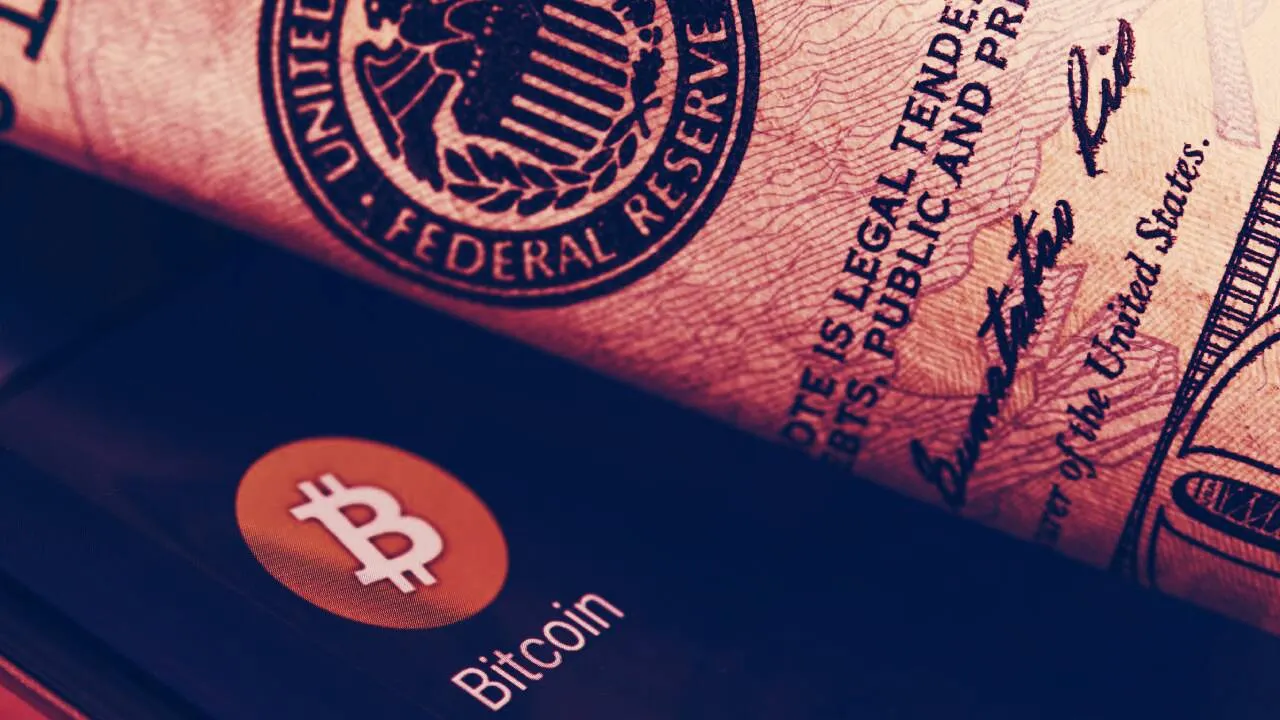In brief
- US Federal Reserve Chairman Jerome Powell reiterated today his belief that Bitcoin is more like gold than any currency.
- During the Bank of International Settlements Innovation Summit event, the central bank chairman also said the currency was too volatile to replace the US dollar.
US Federal Reserve Chairman Jerome Powell today reiterated that Bitcoin could be considered a substitute for gold, bolstering the view shared among some market participants that Bitcoin is a new "digital gold." Powell, however, warned of the cryptocurrency’s volatility.
During the Bank of International Settlements Innovation Summit virtual event, the US central bank head said that Bitcoin was a “speculative asset.”
“Crypto assets are highly volatile—see Bitcoin—and therefore not very useful as a store of value, and they're not backed by anything,” he said.
“They're more of an asset for speculation, so they're not particularly in use as a means of payment. It's more a speculative asset. It's essentially a substitute for gold rather than for the dollar.”
This isn’t the first time Powell has made such comments. In 2019, he called the cryptocurrency a “a speculative store of value, like gold” during an interview.
But today Powell did say that Bitcoin had no chance of replacing the dollar. “I think with crypto assets, the public needs to understand the risks,” he said. “There’s the volatility, there’s also the energy requirements for mining and the fact that they’re not backed by anything.”
He added that stablecoins are an improvement on crypto assets like Bitcoin, but they would not be able to replace the current global monetary system.
Stablecoins are cryptocurrencies designed to have low volatility. They are usually backed by fiat money, which tends to be more stable, such as the US dollar.
Such projects—particularly Facebook’s Diem—have worried authorities around the world because of the potential risks they pose to monetary sovereignty.
The Federal Reserve previously said it was closely monitoring such currencies and their risks. And lawmakers in Europe have said more regulation of stablecoins is needed.
CBDCs—government-backed digital versions of native fiat currencies, such as the US dollar or Japanese yen—were a hot topic during the virtual event. Powell was also asked about the Fed’s progress on one but said that the central bank was taking its time on researching such a currency. “We don’t need to rush this project, we don’t need to be first to mark it,” he said.
“A dollar CBDC would have potentially large implications here and around the world and we’ll be sure to think carefully about all of that and engage very broadly with the public, around the world and particularly here in the US, before we even approach a decision.”
Powell told the virtual meeting that the Fed was not in “in the mode of making a decision at this point” on releasing a CBDC.
But while the US central bank takes its time on a native digital currency, other countries are way ahead of the game.
China is already piloting a digital yuan, and the Bahamas last year launched its own sand dollar, a blockchain-based digital equivalent of the Bahamian dollar.

